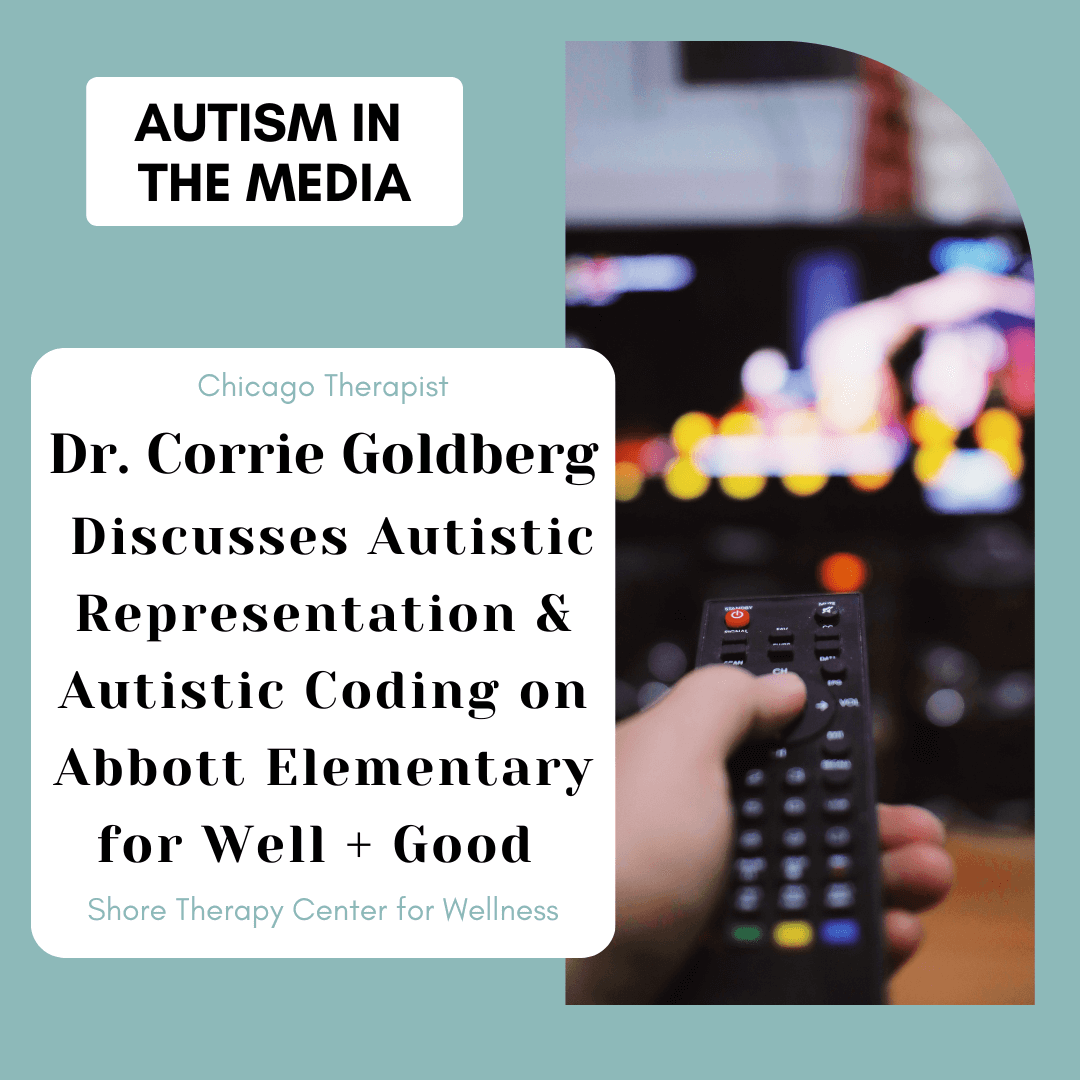Autism in the Media: Chicago Therapist Talks Autistic Representation and Autistic Coding on Abbott Elementary for Well + Good
The History of Autism in the Media
The first media portrayal of autism to strongly shape society’s view of autistic people was Dustin Hoffman’s character, Raymond Babbitt, in the 1988 film, Rain Man. Hoffman’s representation of an endearing but rigid and volatile man-child with astounding mathematic abilities made the broader society aware of autism but simultaneously limited that awareness to a narrow and novel portrayal that largely cemented a stereotype of autistic people focused on seemingly astonishing and strange abilities and differences.
The emphasis on the differences between autistic people and the broader allistic (non-autistic) and neurotypical society largely served to marginalize autistic individuals in the way that circus freakshows did of other seeming oddities in the past. This misconception of autistic people as awkward, infantilized, savants has been challenging to change in the decades that have followed. In fact, media-perpetuated stereotypes of autism have contributed to the lack of recognition of the depth and variance within the autistic neurotype, as well as the complexities of the humanity of autistic people, which mirrors the complexity of the humanity of all people. This limited view has contributed to a lack of identification and validation, especially among individuals assigned female at birth (AFAB) and people of color, as well as autistic people with less outwardly evident support needs.
Actually Autistic Writers and Actors Bring Autism Representation to the Forefront in Television and Movies
Fortunately, it seems that art is starting to more closely imitate life as characters in television and film are slowly expanding the representation of neurodiversity more broadly, and of autism more specifically to show more nuanced and varied portrayals that span ages, races, genders, capacities, and needs. This change has been aided by leveraging the talents of actually autistic people to write, act, and consult in the development of autistic characters on-screen.
The short-lived television series, Everything’s Gonna Be Okay, written by, and starring, Josh Thomas not only featured autistic actresses Kayla Cromer and Lillian Carrier in lead and supporting roles on the series, but Thomas himself sought out and received an autism diagnosis while writing the series. The show is one of many to center an autistic character, but was unique in its effectiveness in telling the stories of several lives lived and connected to others through autistic lenses, rather than emphasizing autism as the main or exclusive plot point; painted in broad brush strokes or used primarily as a vehicle for comedic or dramatic effect.
Autistic-Coded Characters Provide Neurodiversity-Affirming Representation and Normalization in the Media
Additionally, autistic individuals and those familiar with the diversity of autism are increasingly calling attention to characters on television or in film who are not directly labeled as autistic, but who show a number of qualities and behaviors closely associated with autism. These characters, referred to as autistic-coded, due to their demonstrated autistic traits without a specific autistic label, have served to normalize autism despite the audience often largely remaining unaware that these portrayals represent some of the many faces of autism.
Actually Autistic Writer Discusses Viewpoints from Dr. Corrie Goldberg and Other Neurodiversity Affirming Therapists and Autism Advocates
I recently had the opportunity to join voices with autism advocates and other neurodiversity-affirming therapists to discuss one such character, teacher Gregory Eddie from the popular show Abbott Elementary, and the significance of authentic autistic representation in the media. Find the full article, written by autistic writer Suzannah Weiss for Well + Good here.
The Changing Face of Autism in the Media and the Importance of Accurate Autistic Representation
It is encouraging to see shifts in portrayals of autism in the media through labeled and autistic-coded characters who bring broader, and often more accurate, representations of autism into the spotlight. Raymond Babbitt’s character showed how powerful the media can be in shaping the public understanding of autistic people, and almost thirty-five years later the actors and writers of today are helping to expand that awareness. These changes will hopefully increase the affirmation and inclusion of autistic people and their experiences, and reduce the marginalization of autistic people in our society through individuals and systems that often do not recognize, understand, or support their strengths and their needs.
Affirming Neurodivergent Therapy Chicago North Shore and Across the U.S. with PSYPACT Virtual Therapy Online
Shore Therapy is committed to providing high-quality, neuroaffirming, therapy that honors your neurotype rather than pathologize or pigeonhole it. If you are struggling with your experiences navigating life as an autistic person in a world where you have not felt seen or understood, contact me for a free 15-minute consultation to discuss if neurodiversity-affirming therapy may be helpful for you. I specialize in affirming therapy for neurodivergence and for the LGBTQIA+ community; therapy for trauma and PTSD; treatment of anxiety, trauma, burnout, and more using EMDR therapy; and therapy for parents and caregiver burnout. I provide online therapy for adults throughout Chicago North Shore and across the U.S. in all participating PSYPACT states.

